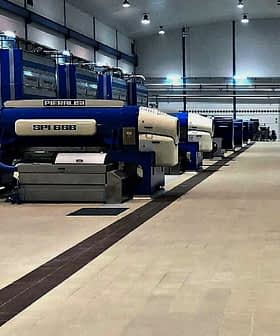Researchers Convert Olive Mill Wastewater for Practical Uses
Research has discovered how to reduce the detrimental effect of olive oil mill wastewater on the environment.
Olive oil is prized for its culinary uses and health benefits around the world. Yet the process of producing the oil results in copious amounts of wastewater, which reduces soil fertility, contaminates waterways and harms surrounding ecosystems.
See Also:Articles on Sustainability
Now, scientists have found a way to transform some of these negatives into positives. They have developed a procedure that changes the pollutant into useful products; namely, biofertilizers, green fuels and safe water for crop irrigation.
The objective is to use local resources in a simple way in order to develop a circular economy.
In the olive oil manufacturing process, olives are crushed and mixed with water. Afterwards, the oil is extracted and the dirty wastewater is discarded. Most olive oil is produced in Mediterranean countries, where the milling procedure generates approximately 8 billion gallons of wastewater per year. Such vast amounts present a challenge in its disposal.
The removal of the wastewater can be problematic. Discarding it in streams can pollute drinking water and pose a hazard to aquatic life. Using it in crops can be detrimental to the soil and effect harvest yields. Scientists have tried burning the wastewater with other wastes, but the process has been either too expensive or has created unacceptable amounts of air pollution.
In a new study, Mejdi Jeguirim and colleagues wondered if they could change olive mill wastewater (OMW) into practical sustainable products. They combined OMW with cypress sawdust, another waste product common in the Mediterranean area. After quickly drying the mixture, they collected the evaporated water, which could safely be used for crop irrigation.
The team then subjected the solid part of the mixture to pyrolysis, which is the application of high heat without oxygen to organic material. In the absence of oxygen, combustion doesn’t occur in the material; however, it decomposes into charcoal and combustible gases. The scientists collected the gas and condensed it into bio-oil, a fuel that could serve as a heat source for drying the OMW-sawdust mixture and conducting pyrolysis.
Lastly, they collected the charcoal, which was a rich source of potassium, nitrogen, phosphorus and other nutrients. After using this for five weeks as a biofertilizer for plants in flowerpots, they observed it significantly enhanced plant growth, resulting in larger leaves and greater yields.
“This project offers the possibility of managing olive oil mill wastewater as a source of nutrients for plants,” said Jeguirim, of France’s Mulhouse Institute of Materials Science. “The objective is to use local resources in a simple way in order to develop a circular economy. The main benefits come from the environmental impact which is lowered, and also the production of a biofertilizer.”
The study was published in the journal ACS Sustainable Chemistry & Engineering.








